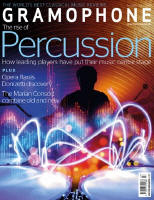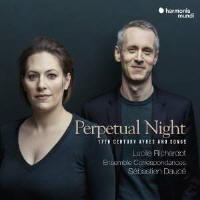Texte paru dans: / Appeared in: |
|
|
Outil de traduction (Très approximatif) |
|
|
Reviewer:
Alexandra Coghlan
But it’s the
album’s parallel, historical narrative that is, if anything, more interesting.
Mining the neglected period between Dowland and Purcell for its musical
interest, Richardot and her collaborators explore the French influence that
helped take vocal music from court to commercial theatres, birthing that most
English of musical genres: semi-opera.
Promoted from
supporting act to main event, works by Lawes and Locke, Robert Ramsey and John
Banister reveal rather startling musical secrets. The bold dissonance and
volatile harmonic shifts of Lawes’s ‘Music, the master thy art is dead’ and
‘Whiles I this standing lake’ are painted with Caravaggio-like depth by
Richardot (such a compelling Penelope in John Eliot Gardiner’s touring Ulisse,
whose inky tone combines the best of countertenor brilliance and mezzo
earthiness), while the Judgement of Paris is vividly dramatised in John Hilton’s
‘Rise, princely shepherd’, and operatic energy absolutely bursts from Banister’s
‘Amintas, that true hearted swain’. The 12-strong instrumental ensemble (who elevate this recording with the embroidered detail, variety and palimpsest-shading of their accompaniments) are also enriched by a fine quartet of singers, who take consort song close to arioso in Robert Ramsey’s expansive setting of Herrick’s ‘Howl not, you ghosts and furies’, taking chamber music right to the brink of staged musical drama. Lawes and Locke may never quite have Purcell’s pulling-power on a recording but that disparity has rarely sounded more misplaced than it does here. |
|




